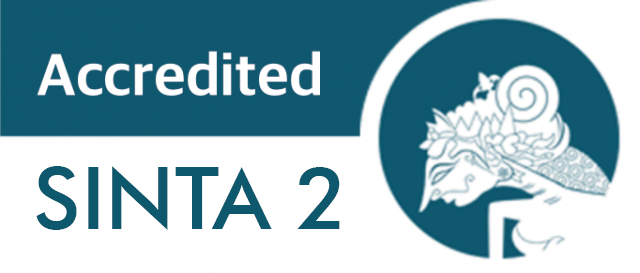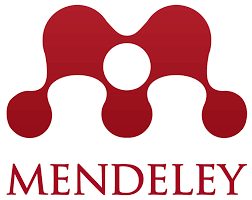Adapting Pedagogical Approaches in Model Islamic Educational Institutions: Balancing Contemporary Needs with Islamic Values
DOI:
https://doi.org/10.15408/tjems.v11i2.40965Keywords:
pedagogical approaches, Islamic educational institutions, contemporary needs, Islamic values, Gambia, pendekatan pedagogis, institusi pendidikan Islam, kebutuhan kontemporer, nilai-nilai IslamAbstract
Abstract
This paper examines the adaptation of pedagogical approaches in model Islamic educational institutions in The Gambia, focusing on the balance between contemporary educational needs and Islamic values. Through a comparative analysis of a selected institution in The Gambia, this study explores how the school incorporates innovative teaching strategies and contemporary curricula alongside traditional Islamic teachings using a single case study of the qualitative research approach. The findings were viewed through DuBow and Litzler’s (2019) Theory of Change (ToC). A thorough synthesis of the data, collected through semi-structured interviews with the school leader and teachers, revealed that model Islamic schools in the Gambia could integrate modern teaching methods and maintain their students’ Islamic values through preparation (planning), execution(implementation), risks, and outcomes (evaluative interventions). The findings from this paper highlight best practices and identify potential areas for improvement, offering insights into how a model Islamic educational institution can effectively navigate the demands of modern education without compromising its foundational Islamic values. The implications for policymakers, educators, and religious leaders underscore the importance of collaboration and flexibility in fostering educational environments that honor Islamic traditions and contemporary educational standards.
Abstrak
Artikel ini mengkaji adaptasi pendekatan pedagogis di institusi pendidikan Islam model di Gambia, dengan fokus pada keseimbangan antara kebutuhan pendidikan kontemporer dan nilai-nilai Islam. Melalui analisis komparatif pada salah satu institusi di Gambia, studi ini mengeksplorasi bagaimana sekolah tersebut mengintegrasikan strategi pengajaran inovatif dan kurikulum kontemporer bersama dengan pengajaran Islam tradisional menggunakan pendekatan studi kasus tunggal dalam penelitian kualitatif. Temuan dianalisis menggunakan Theory of Change (ToC) dari DuBow dan Litzler (2019). Sintesis data yang diperoleh melalui wawancara semi-terstruktur dengan pemimpin sekolah dan guru mengungkapkan bahwa sekolah Islam model di Gambia dapat mengintegrasikan metode pengajaran modern sekaligus mempertahankan nilai-nilai Islam siswa melalui tahapan persiapan (perencanaan), pelaksanaan (implementasi), risiko, dan hasil (intervensi evaluatif). Temuan dari artikel ini menyoroti praktik terbaik dan mengidentifikasi potensi area yang dapat ditingkatkan, serta memberikan wawasan tentang bagaimana institusi pendidikan Islam model dapat secara efektif menavigasi tuntutan pendidikan modern tanpa mengorbankan nilai-nilai Islam yang mendasarinya. Implikasinya bagi pembuat kebijakan, pendidik, dan pemimpin agama menekankan pentingnya kolaborasi dan fleksibilitas dalam menciptakan lingkungan pendidikan yang menghormati tradisi Islam sekaligus memenuhi standar pendidikan kontemporer.
How to Cite: . Jallow, A. F., & Jabbie, A. (2024). Adapting Pedagogical Approaches in Model Islamic Educational Institutions: Balancing Contemporary Needs with Islamic Values. TARBIYA: Journal of Education in Muslim Society, 11(2), 115-134. doi:10.15408/tjems.v11i2.40965.
References
Adamson, J. (2006). The semi-structured interview in educational research: Issues and considerations in native- to non-native speaker discourse.
Alam, L. (2017). Becoming Modern Muslim: New Emerging Trends of Islamic Schools in Yogyakarta. Ta’dib: Jurnal Pendidikan Islam, 22(1), 75–86. https://doi.org/10.19109/td.v22i1.1331
Amzat, I. H. (2022). Supporting Modern Teaching in Islamic Schools: Pedagogical Best Practice for Teachers. Routledge.
Arifin, Z. (2018). Al-Ghazali’s Thought of Islamic Education And it’s Relevance with the Modern Education. Khalifa: Journal of Islamic Education, 2(1).
As’ad, M. (2021). Adaptation into Islamic Education 4.0: An Approach to Redesigning a Sustainable Islamic Education in the Post-Pandemic Era. Akademika: Jurnal Pemikiran Islam, 26(1), 19. https://doi.org/10.32332/akademika.v26i1.3122
Bahri, S., Tannady, H., Saputra, N., Hasanah, M., Fuady, M. N., & Yudil, M. (2022). Role of Educational Management, Islamic Norms and Character Education on the Moral Development in Junior High School Indonesia: Moderating Role of Institutional Support. Eurasian Journal of Educational Research.
Boyle, H. N. (2006). Memorization and Learning in Islamic Schools. Comparative Education Review, 50(3), 478–495. https://doi.org/10.1086/504819
Braun, V., & Clarke, V. (2006). Using thematic analysis in psychology. Qualitative Research in Psychology, 3(2), 77–101. https://doi.org/10.1191/1478088706qp063oa
Braun, V., & Clarke, V. (2019). Reflecting on reflexive thematic analysis. Qualitative Research in Sport, Exercise and Health, 11(4), 589–597. https://doi.org/10.1080/2159676X.2019.1628806
Creswell, J. W., & Creswell, J. D. (2018). Philosophical Worldviews. In Research design: Qualitative, quantitative, and mixed methods approaches (5th edition). SAGE.
DuBow, W. M., & Litzler, E. (2019). The Development and Use of a Theory of Change to Align Programs and Evaluation in a Complex, National Initiative. American Journal of Evaluation, 40(2), 231–248. https://doi.org/10.1177/1098214018778132
Elihami, E., Sukman, Sukman S., & Sicat, S. (2024). Adapting Islamic Education to Modern Realities: Trends and Challenges in 2024. Edumaspul - Jurnal Pendidikan.
El-Mubarak, A. M. O. I., & Hassan, I. (2021). Challenges of Islamic Education in the Era of Globalization: A Proposed Holistic Solution. International Journal of Academic Research in Progressive Education and Development, 337–349. http://dx.doi.org/10.6007/IJARPED/v10-i3/10748 DOI:10.6007/IJARPED/v10-i3/10748
Fadlan, A. (2023). Influence of the Impact of Education in View of Economic Development Planning and Investment on the Contribution of Islamic Education Institutions. International Journal of Education and Teaching Zone, 2(3), 412–420. https://doi.org/10.57092/ijetz.v2i3.135
Freire, F. (Ed.). (2022). State, Society, and Islam in the Western Regions of the Sahara: Regional Interactions and Social Change. I.B. Tauris. https://doi.org/10.5040/9780755643493
George, T. (2022). Title: Semi-Structured Interview: Definition, Guide & Examples Author: Year 2022 Site: Scribbr [Blog]. Methodology. https://www.scribbr.com/methodology/semi-structured-interview/
Guna, B. W. K., Yuwantiningrum, S. E., Firmansyah, F., Aminudin, Muh. D., & Aslan, A. (2024). Building Morality and Ethics Through Islamic Religious Education in Schools. International Journal Of Graduate Of Islamic Education, Vol. 5 No 1, 14–23.
Gyagenda, A. (2021). Integration of Modern ICTs as Modes of Instruction for Islamic Education in Higher Institutions of Learning. Interdisciplinary Journal of Education, 4(2), 133–145. https://doi.org/10.53449/ije.v4i2.62
Hakiem, H., Devi, A., Mulyadi, N., Islahudin, I., & Atika, N. (2023). Islamic Scholar Thought on Intrapreneurial Leadership Characteristic Framework for Islamic Education Institutions. Educational Administration: Theory and Practice, 29(3), 216–237. https://doi.org/10.52152/kuey.v29i3.728
Hashim, I., Jemali, M., & Universiti Pendidikan Sultan Idris (UPSI), Malaysia. (2017). Key Aspects of Current Educational Reforms in Islamic Educational Schools. Global Journal Al Thaqafah, 7(1), 49–57. https://doi.org/10.7187/GJAT12620170701
Ilham, D. (2020). The Challenge of Islamic Education and How to Change. International Journal of Asian Education ·, 15–20. https://doi.org/DOI: 10.46966/ijae.v1i1.16
Iqbal, D. M., Yousaf, M., Shaheen, A. K., & Nisa, Z. U. (2023). Barriers To Modern Education In Madrasas Of Pakistan: Student And Teacher’s Perceptions. Journal of Positive School Psychology 2023, Vol. 7, No. 1, 31-40, 7(1), 31–40. http://journalppw.com
Johnson, R. B., & Christensen, L. B. (2020). Educational research: Qualitative, quantitative and mixed method approaches (7th ed.). SAGE.
Memon, N., A. (2021). Islamic pedagogy for Islamic schools. Oxford Research Encyclopedia of Education. https://doi.org/10.1093/acrefore/9780190264093.013.1515
Ogunnaike, O. (2020). Sufism, Islamic Philosophy, and Education in West Africa. In O. Ogunnaike, Oxford Research Encyclopedia of African History. Oxford University Press. https://doi.org/10.1093/acrefore/9780190277734.013.592
Popping, R. (2019). Reliability and Validity. In R. Popping (Ed.), Introduction to Interrater Agreement for Nominal Data (pp. 11–20). Springer International Publishing. https://doi.org/10.1007/978-3-030-11671-2_2
Raihani, R. (2020). A Model of Islamic Teacher Education for Social Justice in Indonesia: A Critical Pedagogy Perspective. Journal of Indonesian Islam, 14(1), 163. https://doi.org/10.15642/JIIS.2020.14.1.163-186
Rohman, M. Q. (2018). Modernization of Islamic Education according to Abdullah Nashih Ulwan. Proceedings of the 1st International Conference on Intellectuals’ Global Responsibility (ICIGR 2017). 1st International Conference on Intellectuals’ Global Responsibility (ICIGR 2017), Sidoarjo, Indonesia. https://doi.org/10.2991/icigr-17.2018.40
Sahin, A. (2013). New directions in Islamic education: Pedagogy and identity formation. Kube Publishing Ltd.
Sheppard, V. (2020). Research Methods for Social Sciences: An introduction. BCcampus.
Tamari, T. (Ed.). (2016). Islamic Education in Africa: Writing Boards and Blackboards. Indiana University Press. https://doi.org/10.2307/j.ctt1zxz0gv
Tan, C. (2017). Colonialism, Postcolonialism, Islam, and Education. In J. Voogt, G. Knezek, R. Christensen, & K.-W. Lai (Eds.), Second Handbook of Information Technology in Primary and Secondary Education (pp. 1–12). Springer International Publishing. https://doi.org/10.1007/978-3-319-53620-0_22-1
Ulmadevi, U., Supriadi, S., Simbolon, A. M. Y., Yunita, I., Jannah, Z., & Asri, R. W. (2023). The 5Th Graduate International Conference. http://proceedings.uinbukittinggi.ac.id/gic
Yarun, A., Bakar, M. Y. A., & Fuad, A. Z. (2023). Fazlur Rahman’s Concept of Islamic Education and Its Relevance In The Modern Era.
Zuhdi, M. (2022). The Future of Islamic Education: Ideology, Technology, Pedagogy & Professionalism. International Conference on Education in Muslim, 1–8.











